Christmas Hangover Recovery Recipe
At the first mention of politics at the dinner table, you reach for the closest bottle of red and never look back. Accompanied with four helpings of mashed potatoes, an argument with drunken uncle Tom and a night spent tossing and turning in your old childhood bedroom, it’s no wonder that the next morning you feel like you got run over by Santa’s sleigh.
Swigging back one too many spirited holiday drinks may looked like a great idea at the time, but the hangover symptoms like illness and that aching head will probably feel like Mariah Carey’s All I Want For Christmas song on repeat. You need it to stop. ;) Here are some helpful tips for alcohol consumption during the holidays!
Don’t drink on an empty stomach
Putting anything in the stomach prior to indulging in alcohol helps prevent a hangover, but fatty foods in particular stick to the stomach lining longer and therefore slow down the absorption of alcohol into the bloodstream. While that might make it take longer to feel the alcohol's effects, it also gives the body more time to process the byproducts and will increase a drinker's chances of feeling decent in the morning. So much so, in fact, that a Mediterranean folk tactic is to take a spoonful of olive oil before drinking alcohol. Eating lighter food such as a fruit smoothie will provide energy and alleviate some symptoms by replenishing the electrolytes the body lost from dehydration.
Stay Hydrated
As a prevention method, drinking a glass of water for every alcoholic beverage slows down drinking, providing more time for the body to deal with the alcohol (the body can only process about three-quarters of an ounce of alcohol in an hour). Drinking a few glasses of water before going to bed helps fight dehydration after the body finishes breaking down the alcohol.
Replenishing the body's water supply after a night of drinking combats dehydration, and it also helps dilute the leftover byproducts in the stomach. Adding salt and sugar to water helps replace the sodium and glycogen lost the night before. Non-caffeinated, non-carbonated sports drinks can achieve the same effect.
Help ease the hangover
When you're hungover, your body is feeling the effects of alcohol. The nausea, weakness, and headache you're feeling will only go away if you try to counteract them in the most practical and healthiest ways. That includes rest to let your system recover, water to rehydrate your body, and some way to replenish the essential vitamins you lost overnight. The right minerals and nutrients help ease the hangover. Here are the ones that will help you on the way!
Cysteine
Cysteine is an amino acid that helps create anti-oxidants in the body and can reduce the severity of hangovers. It breaks down acetaldehyde, a chemical formed when the body metabolizes alcohol. High cysteine foods include soybeans, sunflowers seeds, oats, fish, cheese, eggs, and legumes like red pepper, garlic, onions, and broccoli.
Pottasium
Potassium is an essential nutrient used to maintain fluid and electrolyte balance in the body.
Eating bananas the morning after a night of heavy drinking provides lost electrolytes like any food would, but it also specifically replenishes the potassium lost to alcohol's diuretic effect. Other high potassium foods include potatoes, leafy green vegetables, fish, white beans, avocados, mushrooms, bananas, and cooked tomatoes. Non-caffeinated, non-carbonated sports drinks work as well.
Fructose
The fructose (fruit sugar) in a fruit juice helps to naturally increase the body's energy. Studies have proven that it also increases the rate at which the body gets rid of toxins such as those left over from alcohol metabolism. Fruit juice is also a good idea the morning after because it's high in vitamins and nutrients that were depleted the night before because of alcohol's diuretic effect. Vitamin supplements high in vitamins C and B are also effective.
Electrolytes
Electrolytes are essential nutrients necessary for maintaining a proper balance of hydration and pH in the body. A deficiency or imbalance of any electrolyte can disrupt electrical signaling in the muscles leading to muscle cramps and fatigue. Key electrolytes for the body include sodium (NA), potassium (K), calcium (CA), magnesium (MG), Phosphorus (P), and Chloride (CL). Foods high in electrolytes include yogurt, cheese, coconut water, soymilk, seafood, and green leafy vegetables. Non-caffeinated, non-carbonated sports drinks work as well. Watch out for caffeine in sports drinks, as while caffeinated drinks may make you feel better temporarily, they'll only extend your hangover and delay your recovery.
Veggie Food Tip: Asparagus Omelet
The minerals in asparagus help to reset your liver and break down the alcohol in your system. Plus, the amino acids (cysteine) in eggs remove any remaining toxins still lingering in your system. Pack a one-two punch and eliminate your hangover by combining those ingredients in a omelet for breakfast!
Vegan Food Tip: Potato Burrito
Of course there are also many vegan hangover breakfast options. How about a vegan potato burrito? The great thing about burrito’s is that you can make endless combinations! You can find a nice one here!
The Biology of Your Hangover
A product of alcohol metabolism that is more toxic than alcohol itself, acetaldehyde is created when the alcohol in the liver is broken down by an enzyme called alcohol dehydrogenase. The acetaldehyde is then attacked by another enzyme, acetaldehyde dehydrogenase, and another substance called glutathione, which contains high quantities of cysteine (a substance that is attracted to acetaldehyde). Together, the acetaldehyde dehydrogenase and the glutathione form the nontoxic acetate (a substance similar to vinegar). This process works well, leaving the acetaldehyde only a short amount of time to do its damage if only a few drinks are consumed.
Unfortunately, the liver's stores of glutathione quickly run out when larger amounts of alcohol enter the system. This causes the acetaldehyde to build up in the body as the liver creates more glutathione, leaving the toxin in the body for long periods of time.
Some of the most common hangover symptoms; fatigue, stomach irritation and a general sense of illness all over can be further attributed to something called glutamine rebound.
Glutamine Rebound
After a night of alcohol consumption, a drinker won't sleep as soundly as normal because the body is rebounding from alcohol's depressive effect on the system. When someone is drinking, alcohol inhibits glutamine, one of the body's natural stimulants. When the drinker stops drinking, the body tries to make up for lost time by producing more glutamine than it needs.
The increase in glutamine levels stimulates the brain while the drinker is trying to sleep, keeping them from reaching the deepest, most healing levels of slumber. This is a large contributor to the fatigue felt with a hangover. Severe glutamine rebound during a hangover also may be responsible for tremors, anxiety, restlessness and increased blood pressure.
Because alcohol is absorbed directly through the stomach, the cells that line the organ become irritated. Alcohol also promotes secretion of hydrochloric acid in the stomach, eventually causing the nerves to send a message to the brain that the stomach's contents are hurting the body and must be expelled through vomiting. This mechanism can actually lessen hangover symptoms in the long run because vomiting gets rid of the alcohol in the stomach and reduces the number of toxins the body has to deal with. The stomach's irritation may also be a factor in some of the other unpleasant symptoms of a hangover, such as diarrhea and lack of appetite.
Christmas Recovery Session
In case of an emotional Christmas hangover, we have you covered in our Christmas Recovery Session! Restorative yoga with Wim Hof breath work and sweet soothing harp music! Wooohaaa! Check the event here!



